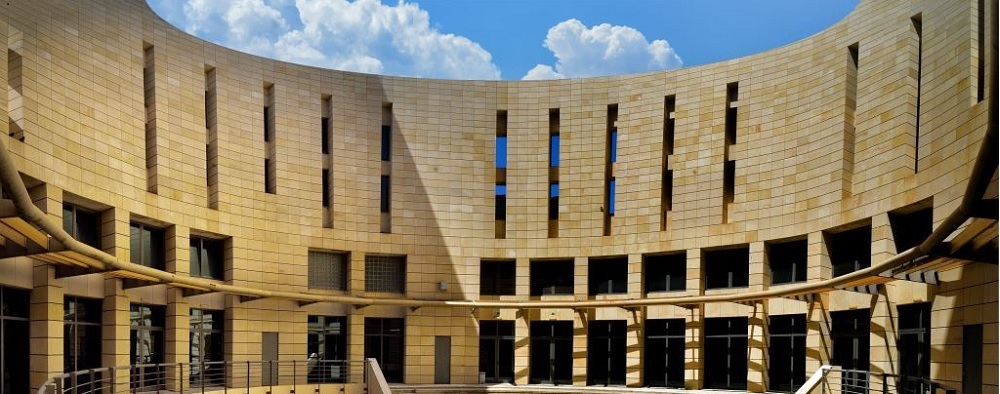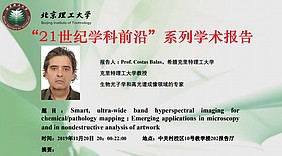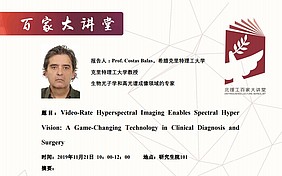Professor Costas Balas, Director of the Electronics Lab, is invited at the School of Information and Electronics, Beijing Institute of Technology (China) to present two lectures, entitled:
- 'Smart, ultra-wide band hyperspectral imaging for chemical/pathology mapping: Emerging applications in microscopy and in nondestructive analysis of artwork' and
- 'Video-Rate Hyperspectral Imaging Enables Spectral Hyper Vision: A Game-Changing Technology in Clinical Diagnosis and Surgery' (BIT Distinguished Lecture Series)
on November 20 and November 21, 2019, respectively.
Abstract of the lectures:
Lecture 1:This talk seeks to capture the recent developments in hyperspectral imaging (HSI). Specifically, the talk will introduce the basic light-mater interaction phenomena from the spectroscopy’s perspective. HSI solutions will be presented together with past and modern HSI system architectures, where the Muses9 hyperspectral camera will be showcased as a modern HSI system paradigm. The talk will continue with spectral unmixing and classification approaches employed for generating spectral maps and present the integrated MUSE9/LUMNIA multimodal hyperspectral microscope in biomedical applications.
Lecture 2: This talk will emphasize on new developments towards an ideal hyperspectral imaging system. The talk will firstly present an advanced, miniaturized hardware configuration, combined with nearly real time spectral classification algorithms, with the total system outputting spectral maps displayed at video rates. This is synonymous to spectral hyper vision , an emerging technology holding the promise to radically improve the diagnostic and surgical treatment accuracy outcomes in several medical practices. A new generation of skin scopes, endoscopes and gynecologic microscopes, implementing this new technology will be presented, together with results from international clinical trials confirming superior performance over traditional methods.





